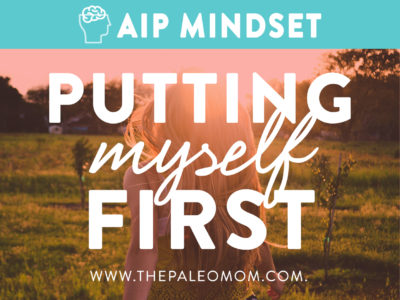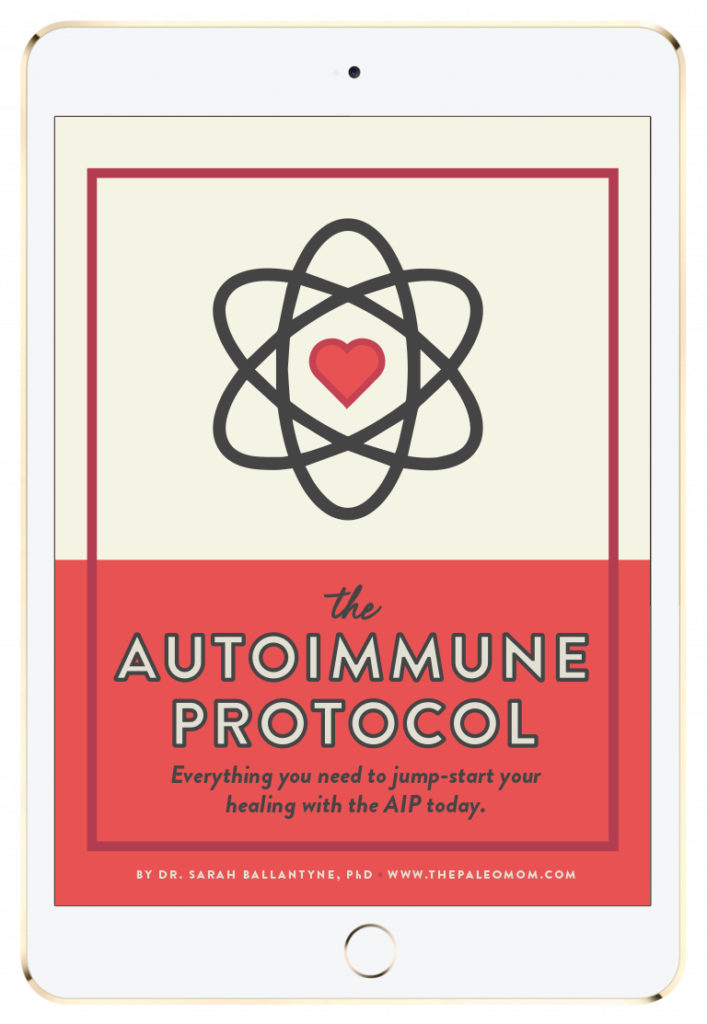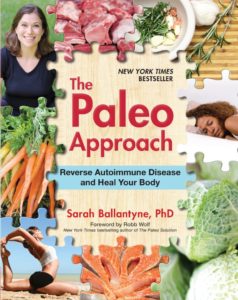As parents, friends and community members, we’re often pulled in a million different directions. In a culture that increasingly emphasizes hard work and self-sacrifice, it’s no surprise that “I don’t have time to put myself first!” is one of the most common struggles I hear about from the AIP community
In my third AIP Mindset Series post (see AIP Mindset: Getting Beyond Feeling Deprived and AIP Mindset: Cooking Is Not A Burden and AIP Mindset: Optimism, Hope and Healing), I want to address the importance of putting oneself first (or at least high up enough on the list that we actually do engage in self-care activities) while following a healing protocol. I want to reassure you that when you make a decision to prioritize your own needs and your healing, you are actually displaying a commitment to your family, friends and community over the long term!
L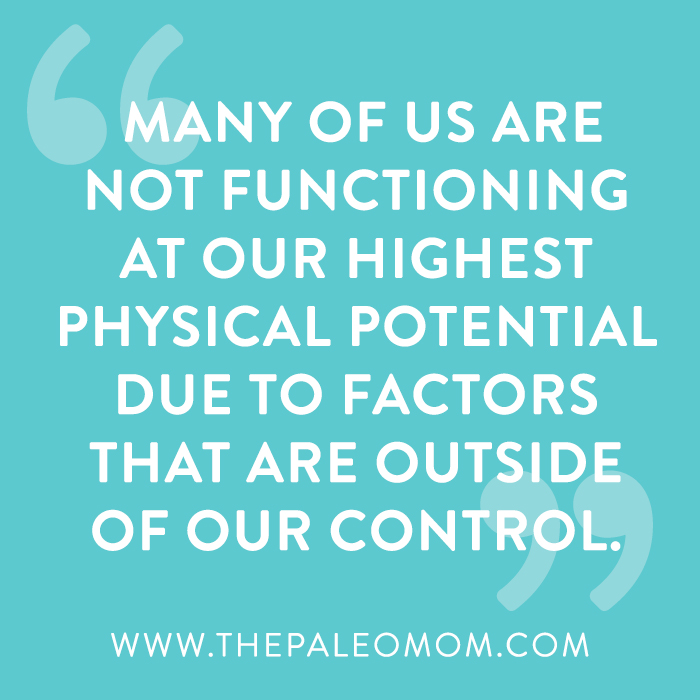 et’s start with some sobering statistics: the American Autoimmune Related Diseases Association estimates that 50 to 60 million Americans, about 20% of us, suffer from autoimmune disease. When you add to that the chronic diseases that are not autoimmune in nature, like heart disease and Type 2 Diabetes, the number of chronically ill Americans becomes way higher. Rates of just about every chronic illness are increasing dramatically. Two thirds of Americans are overweight with 40% of us being obese or extremely obese. Another 40% of Americans report frequently feeling tired during the day, with 10% of men and 15% of women reporting extreme fatigue or exhaustion most of the time. More than half of all Americans take two or more prescription drugs, and about one-fifth of us take at least five different daily medications prescribed by our doctors. Most of us can admit to being underslept, undernourished, overstressed and downright fatigued at some point over the last several years. In other words, many of us are not functioning at our highest physical potential due to factors that are outside of our control.
et’s start with some sobering statistics: the American Autoimmune Related Diseases Association estimates that 50 to 60 million Americans, about 20% of us, suffer from autoimmune disease. When you add to that the chronic diseases that are not autoimmune in nature, like heart disease and Type 2 Diabetes, the number of chronically ill Americans becomes way higher. Rates of just about every chronic illness are increasing dramatically. Two thirds of Americans are overweight with 40% of us being obese or extremely obese. Another 40% of Americans report frequently feeling tired during the day, with 10% of men and 15% of women reporting extreme fatigue or exhaustion most of the time. More than half of all Americans take two or more prescription drugs, and about one-fifth of us take at least five different daily medications prescribed by our doctors. Most of us can admit to being underslept, undernourished, overstressed and downright fatigued at some point over the last several years. In other words, many of us are not functioning at our highest physical potential due to factors that are outside of our control.
The Autoimmune Protocol is a life-changing approach to treating chronic illness, but it is so much more than a “diet.” It also focuses on changing the lifestyle factors which contribute to chronic disease, including sleep, exercise, stress management and relationships (see Sleep Requirements and Sleep Debt: How Much Do We Need?, How Stress Undermines Health, Balancing Physical Activity With Rest: How Do We Get It Right?, The Benefits of Gentle Movement and The Health Benefits of Connection). Between time in the kitchen and time for important lifestyle factors, this requires a commitment to putting ourselves first, and that can feel like a betrayal of the other people in our lives.
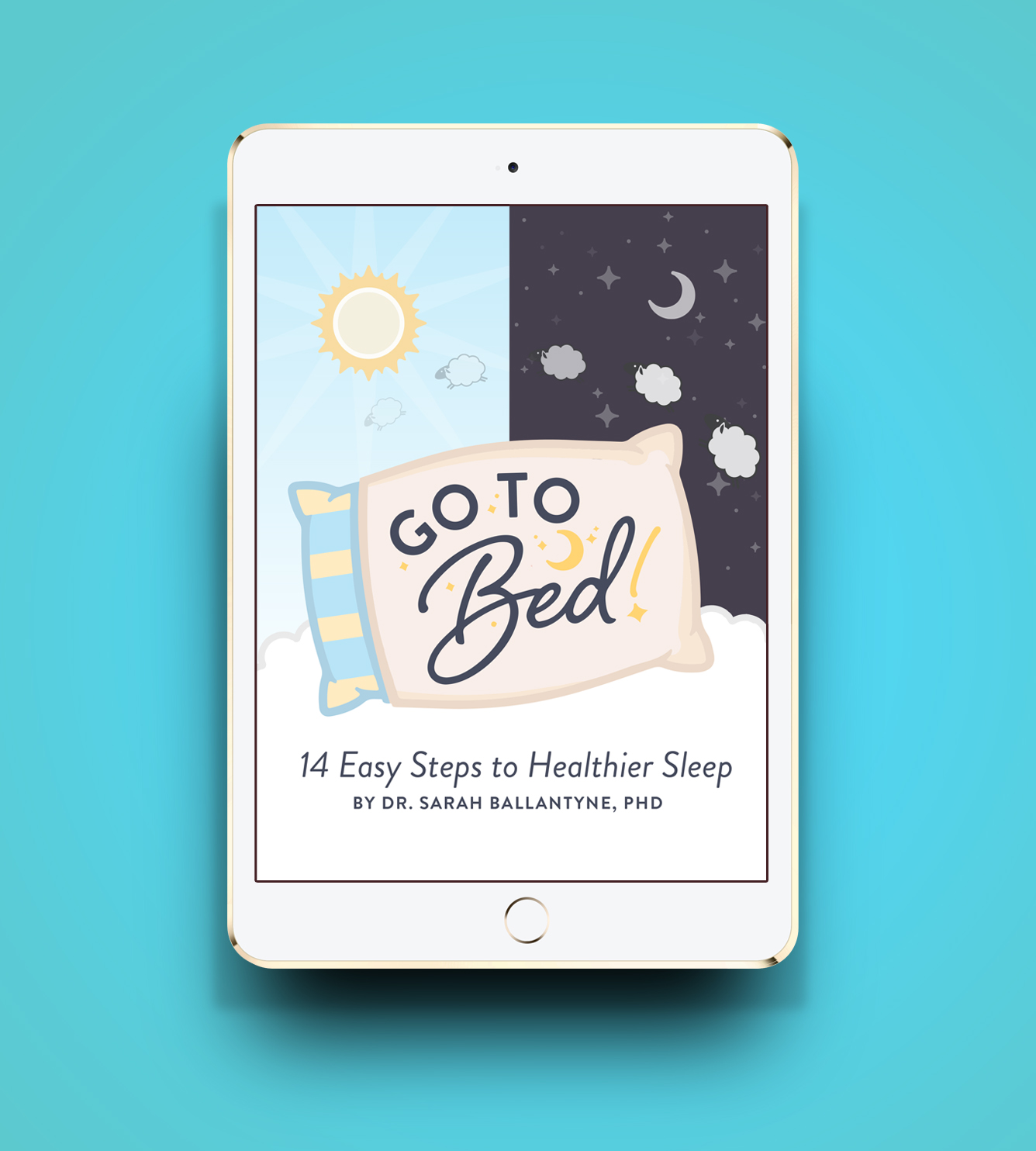 One very tangible example is sleep. As I detail in my epic online program Go To Bed, sleep is perhaps the greatest contributor to our health (and lack of sleep to our lack of health). Yet Americans sleep 1.5 to 2 hours less every single night than they did 50 years ago (and this is very much linked with chronic disease, see Sleep and Disease Risk: Scarier than Zombies!). I find that even when we are willing to completely overhaul our diets, we often cling to the notion that we “don’t have time” to work more sleep into our schedules.
One very tangible example is sleep. As I detail in my epic online program Go To Bed, sleep is perhaps the greatest contributor to our health (and lack of sleep to our lack of health). Yet Americans sleep 1.5 to 2 hours less every single night than they did 50 years ago (and this is very much linked with chronic disease, see Sleep and Disease Risk: Scarier than Zombies!). I find that even when we are willing to completely overhaul our diets, we often cling to the notion that we “don’t have time” to work more sleep into our schedules.
Sleep becomes the thing that we do with once we’re done with the To Do list instead of being a priority on that To Do list in the first place. Perhaps sleep doesn’t seem attainable because we need to help our children with their homework in the evenings, because after the kids go to bed is the only time we get with our spouses, because we need to prepare meals for the next day late at night…you get the picture. Yet the truth is, when we don’t sleep enough, we are worse at all the activities I just listed. Our moods are negatively impacted, our attention is split, we are more forgetful and, overall, our health is worse.
It’s entirely possible that adding an extra hour of sleep to our routine each night will mean more quality time with our families and other responsibilities—even if at first it means that we spend an hour less doing those activities. That’s because being well rested boosts our mood, our physical performance and our cognitive abilities like memory and decision making. Sleep is an investment into how efficiently and effectively we function during the day. The example of sleep is analogous to other areas of our lives we might feel are too “indulgent” to which to pay attention. Maybe getting enough sleep isn’t a big challenge for you, but finding time during the day for activities that reduce stress (like mindfulness or a nature walk) is a real struggle. Or maybe carving out quality one-on-one time to spend with your spouse is what gets constantly sacrificed for other responsibilities. In fact, I find that many of the lifestyle factors that make the biggest difference in our lives—like stress management and healthy relationships—are tougher for us to find time for than cooking. Yet these factors are critical (see Healthy Weight Loss With Paleo, Part 2: Lifestyle Choices That Make a Difference).
 Now I want to ask you: what area have you put on the back burner because it feels selfish? Perhaps it’s something obvious, like self-care in the form of meditation, a hot bath, gentle yoga or stretching or spiritual exploration. Self-care might seem like the ultimate indulgence, but it’s actually critical to our healing. As I detailed in my post Self-Care and Healing from Chronic Illness (includes vlog), I felt a tremendous shift in my own desire to attend to self-care after I started taking care of my health with the help of the AIP. This attention to “self-management” is gaining attention in the scientific community as well as a way to reduce the need for medical intervention. In short, self-care is really worth it!
Now I want to ask you: what area have you put on the back burner because it feels selfish? Perhaps it’s something obvious, like self-care in the form of meditation, a hot bath, gentle yoga or stretching or spiritual exploration. Self-care might seem like the ultimate indulgence, but it’s actually critical to our healing. As I detailed in my post Self-Care and Healing from Chronic Illness (includes vlog), I felt a tremendous shift in my own desire to attend to self-care after I started taking care of my health with the help of the AIP. This attention to “self-management” is gaining attention in the scientific community as well as a way to reduce the need for medical intervention. In short, self-care is really worth it!
Maybe you’re stuck at the very beginning of the AIP because taking several hours to prepare compliant food doesn’t seem doable (if you’re struggling with this step, I encourage you to check out meal plans from Real Plans. It can be a fantastic way to get yourself used to planning meals and kick off the AIP). Or, maybe your family and friends love to eat out and you’re afraid to ask them to go somewhere you know has compliant food and an understanding waitstaff.
No matter our hang-ups, it comes down to this: we cannot give ourselves fully to others when we are empty. The time you put into your health now will mean a longer, healthier, fuller life. It will mean you have more energy, attention and motivation in all your tasks. It might even change your outlook on life entirely. Think of your time investment into yourself as filling your car up with gas: once you’ve got a full tank, you can go farther and do more. But, you do need to top up your tank from time to time. In the case of self-care, I recommend committing some time every single day for the activities and commitments to yourself that keep you healthy and happy. Give yourself permission to focus on yourself and to put “me time” on your To Do list.
When we are tempted to feel “selfish” for taking time to heal and nurture ourselves, we can remember that that time is not just for us, but for the people we love. By putting ourselves first, we’re investing in their future as well!

